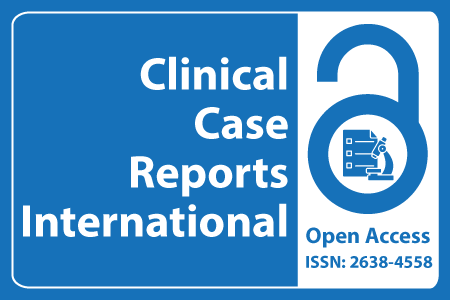
Journal Basic Info
- Impact Factor: 0.285**
- H-Index: 6
- ISSN: 2638-4558
- DOI: 10.25107/2638-4558
Major Scope
- Epilepsy and Seizures
- Toxicology
- Obstetrics and Gynecology
- Endoscopy
- Food Science
- Genetics
- Medical Radiography
- Surgery
Abstract
Citation: Clin Case Rep Int. 2023;7(1):1553.DOI: 10.25107/2638-4558.1553
Machine Learning-Based Prediction of the Genetic Background of Colorectal Liver Metastasis Using Mirna Expression Data
Kucukakcali Z, Akbulut S, Cicek IB and Colak C
Department of Biostatistics and Medical Informatics, Inonu University, Turkey
Department of Surgery, Inonu University Faculty of Medicine, Turkey
*Correspondance to: Zeynep Küçükakçali
PDF Full Text Research Article | Open Access
Abstract:
Aim: Understanding the underlying mechanisms in colorectal cancer, especially in the case of liver metastasis, investigating sensitive and specific molecules associated with metastasis is very important to improve patient clinical outcomes. This study aims to classify open-access microRNA data of patients with colorectal cancer liver metastasis and without liver metastases using the XGBoost method, one of the machine learning methods, and reveal important genes that may cause liver metastases. Methods: This retrospective study considered the open-access microRNA expression data of patients with colorectal cancer liver metastasis and without liver metastases. The dataset consists of miRNA data from 10 CRC tissues from patients with liver metastases and 10 CRC tissues from patients without liver metastases. XGBoost was constructed for the classification via ten-fold crossvalidation. Accuracy, balanced accuracy, sensitivity, specificity, positive predictive value, and negative predictive value performance metrics were evaluated for model performance. Results: With respect to the feature selection method, 23 microRNA were selected, and modeling was performed with these input variables. Accuracy, balanced accuracy, sensitivity, specificity, positive predictive value, negative predictive value, and F1 score obtained from the XGBoost model were 95%, 95%, 90%, 100%, 100%, 90.9%, and 94.7%, respectively. Based on the variable importance findings acquired from the XGBoost, microRNA 4306, microRNA 2115, and microRNA 4708 can be employed as potential biomarkers for liver metastases. Conclusion: As a result of the study, genes that could be biomarkers for colorectal cancer liver metastases were identified using a machine learning-based prediction approach. Following clinical validation of the obtained microRNAs in subsequent research, therapeutic procedures based on this microRNA scan be established, and their usefulness in clinical practice can be documented.
Keywords:
Colorectal cancer; Liver metastases; Machine learning; Biomarker
Cite the Article:
Kucukakcali Z, Akbulut S, Cicek IB, Colak C. Machine Learning-Based Prediction of the Genetic Background of Colorectal Liver Metastasis Using Mirna Expression Data. Clin Case Rep Int. 2023; 7: 1553.













